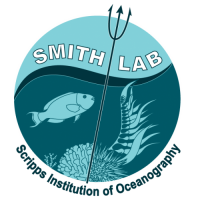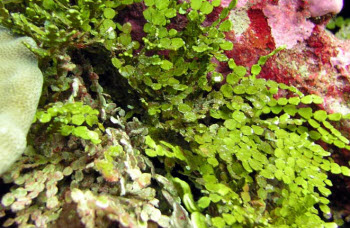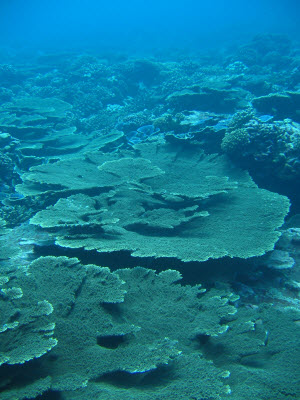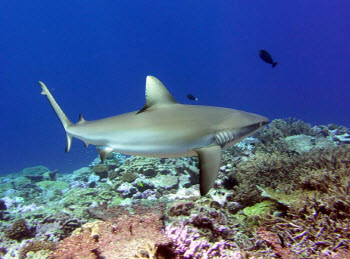The Tent Brigade by Jen Smith, head researcher on the Benthic Team Prior to setting out on this expedition, I really had no idea how the Benthic Team was going to accomplish the goal we had set: performing three separate experiments at each island given no more than four days each. It seemed impossible. Now, after our fourth island, we … Read More
The Underappreciated Reef Algae
The Underappreciated Reef Algae by Jennifer Smith, head researcher on the Benthic Team The green alga Dictyosphaeria cavernosa, commonly known as green bubble algae. Photograph by Jen Smith. Coral reefs are known for their spectacular diversity and striking beauty. When most people think of coral reefs they think of the colorful coral animals themselves—the organisms that build the reef structure and … Read More
The Past, Present, and Future of the Reefs at Fanning Atoll
To a Paleo-Benthic, today’s coral reefs are rich in clues about their past and offer hints as to their future. Atolls such as those that make up the Line Islands are built of the dead skeletons of corals, foraminifera, and calcifying algae. Beneath the deep layers of marine skeletal debris is the old, extinct volcano that gave rise to the … Read More
A Most Useful Useless Reef
Learn about Kingman Reef as we follow the Northern Line Islands Expedition with the latest posts from the field.
Follow the Northern Line Islands Expedition!
Sixteen scientists from three continents and one island are gathering in the Northern Line Islands with one purpose in mind—to increase our understanding of coral reef health and decline. Follow Dr. Smith and her collaborators on this expedition via their blog. The adventure begins on October 24th!
The Smith Lab
The Smith Lab is focused on understanding how humans impact marine ecosystems in both tropical and local environments, as well as developing strategies for restoring these environments for future generations.





